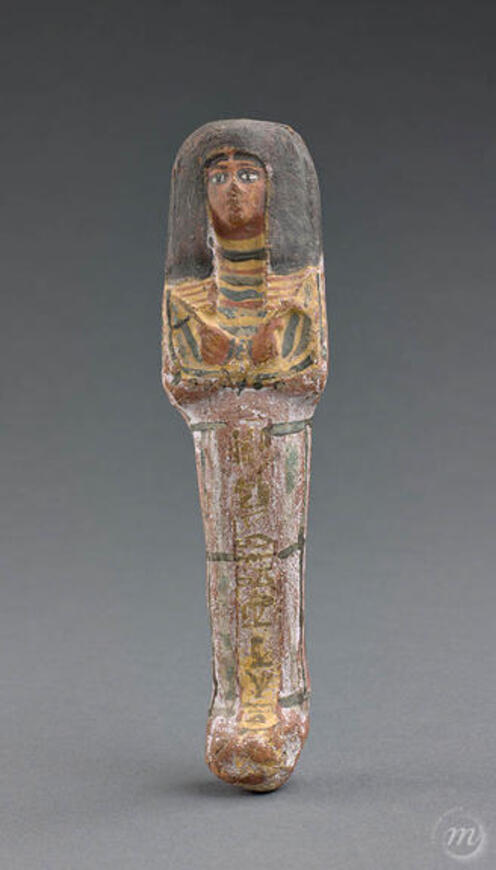Ancient Egyptian life was punctuated by the flooding of the Nile and its abundance, without which agricultural crops could not grow. Agriculture was so important that Egyptians imagined their ideal life after death in the fields, known as the "field of offerings or of the blessed". To reach it, a few magic spells were required.
The Book of the Dead contains all the words to recite to confront the evil spirits of the funerary world and allow the deceased to reach the long-awaited Afterlife, where life is not so far removed from that experienced on Earth: "Here begins the spell of the Field of Offerings and the spell of going forth by day, entering and leaving the empire of the dead, settling in the Field of Reeds, staying in the double Field of Offerings, the great city, master of the breeze, being powerful there, being glorious there, ploughing there, reaping there, eating there, drinking there, making love there, doing everything we are used to doing on earth".
But, like everyone, the Egyptians hoped to escape the everyday chores of cultivating fields, irrigating the riverbanks and transporting sand from East to West after death. The Afterlife must remain a place where the deceased can enjoy the pleasures of life. To do so, the Egyptians imagined a double – a substitute, a little character who would replace them. Taking the form of a statuette holding farming tools, it was placed in the tomb beside the mummy. This was known as the "respondent" (shabti in Egyptian). Its purpose was clearly established in the Book of the Dead: "O shabti, allotted to me, if I be summoned or if I be detailed to do any work which has to be done in the realm of the dead, if indeed any obstacles are implanted for you therewith as a man at his duties, you shall detail yourself for me on every occasion of making arable the fields, of flooding the banks or of conveying sand from east to west; 'Here I am', you shall say."
And that is why each shabti, whether man or woman, carries the tools required for their chores.

Ancient Egyptian life was punctuated by the flooding of the Nile and its abundance, without which agricultural crops could not grow. Agriculture was so important that Egyptians imagined their ideal life after death in the fields, known as the "field of offerings or of the blessed". To reach it, a few magic spells were required.
The Book of the Dead contains all the words to recite to confront the evil spirits of the funerary world and allow the deceased to reach the long-awaited Afterlife, where life is not so far removed from that experienced on Earth: "Here begins the spell of the Field of Offerings and the spell of going forth by day, entering and leaving the empire of the dead, settling in the Field of Reeds, staying in the double Field of Offerings, the great city, master of the breeze, being powerful there, being glorious there, ploughing there, reaping there, eating there, drinking there, making love there, doing everything we are used to doing on earth".
But, like everyone, the Egyptians hoped to escape the everyday chores of cultivating fields, irrigating the riverbanks and transporting sand from East to West after death. The Afterlife must remain a place where the deceased can enjoy the pleasures of life. To do so, the Egyptians imagined a double – a substitute, a little character who would replace them. Taking the form of a statuette holding farming tools, it was placed in the tomb beside the mummy. This was known as the "respondent" (shabti in Egyptian). Its purpose was clearly established in the Book of the Dead: "O shabti, allotted to me, if I be summoned or if I be detailed to do any work which has to be done in the realm of the dead, if indeed any obstacles are implanted for you therewith as a man at his duties, you shall detail yourself for me on every occasion of making arable the fields, of flooding the banks or of conveying sand from east to west; 'Here I am', you shall say."
And that is why each shabti, whether man or woman, carries the tools required for their chores.